On Friday March 3, City Hall was treated to a lyrical feast. Not only was the venue packed with well-wishers for our inaugural poet laureate, Michele Bombardier, but the “warm up” poetry by John Davis was enthralling. The soul of a community can be felt by its embrace of the arts. The overwhelming support, masterful artistry, and sheer delight in our poetry community tells us a lot about Bainbridge Island. If you missed it (and the culinary delights provided by Town & Country Markets), here is the heartfelt speech given by Michele Bombardier. –Currents Editorial team
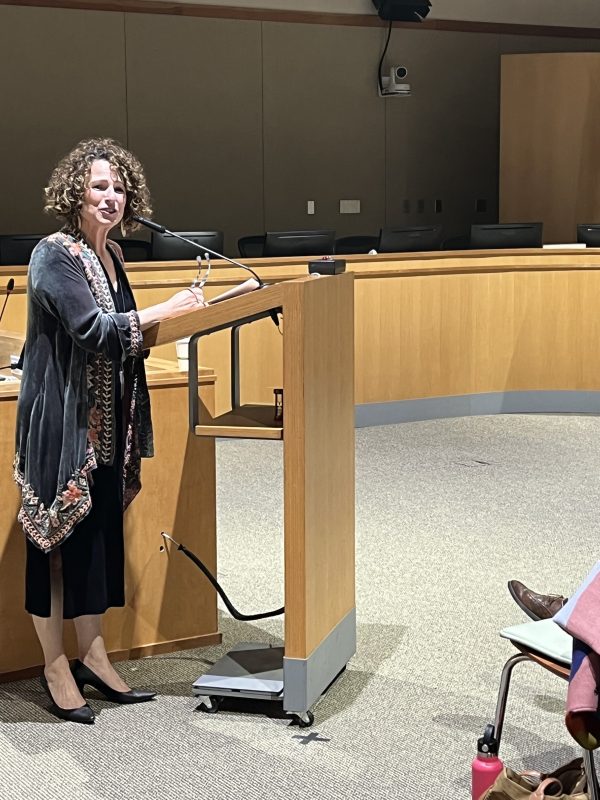

T&C shows up in my poems because I write about my life and T&C is the heart and soul of this community. When I told Steve and Jamie about the poet laureate program, they immediately offered to partner with us. If you want to be inspired, if you want to work to make our community and the world better, READ T&C’s CORE VALUES AND VISION STATEMENT. It is so closely aligned with poetry:
Their mission is to “Nourishing the Quality of Life”- what is poetry if not sustenance? The following phrases are all from T&C’s values statement and are what I hope for this poet laureate program- and for myself as a poet:
To be of service rooted in caring and well-being; a commitment to making a positive difference in the lives of others; to be rooted in Diversity, Equity, and Inclusion for all people to feel welcome, empowered and appreciated. To build a foundation of trust and self-accountability; to learn, teach and develop; and finally, to be true to oneself and act with integrity.
I’m going to start with a poem that I wrote after being in this room a few months ago, my first city council meeting when they voted me in. I found the city council meeting surprisingly moving -how people came to this podium to share their story, or worry, or outrage, and how the council listened carefully, with respect, received what they heard. Charles Schmid was honored, posthumously, for his trail work, his son in proxy. It was beautiful. The process reminded me of poetry: storytelling, deep listening, connections. After that meeting, I met with Demi Allen, who knew Charles Schmid, and we walked that trail. Then I wrote this poem:
The Charles Schmid Trail
What is a trail but kind of table,
an invitation to nourish oneself bone-deep.
A place to gather, each step on the path
in the footsteps of others, where echoes continue.
When I walk by myself, I don’t feel alone.
The trees, how they gossip above us.
These Northwest maritime woods are a cathedral
where we pray with our feet. The canopy arches
above, ferns on a carpet of moss below.
Every day a chance for pilgrimage in my backyard.
I pass the other pilgrims; we nod to each other.
I smell salt in the air, hear the wind in the leaves.
Transience and continuance in every step.
(in The Madrona Project: The Universe Is a Forest, 2023)
Poetry, like its siblings music and story-telling, have always been with us, since we lived in caves. The UNESCO website says: “No society exists without poets…Poetry is essential to open ourselves to the Other. ”-
Audre Lourde famously wrote: “Poetry is not a luxury. It is a vital necessity of our existence. If we only listen selectively to the cultural narratives that ground us in histories of inequity and injustice, we can’t open paths to equity and justice for ourselves and for one another.”
This is the work of poetry: to open ourselves to each other. I believe poetry connects us at our common and deepest humanity.
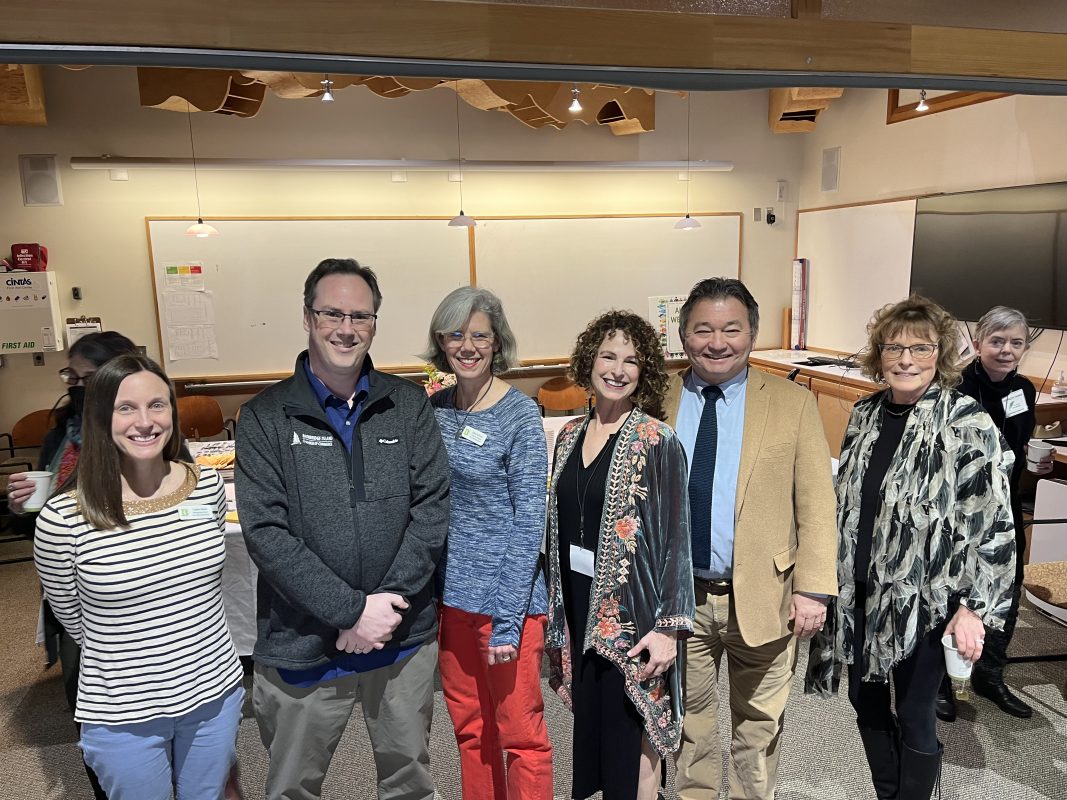
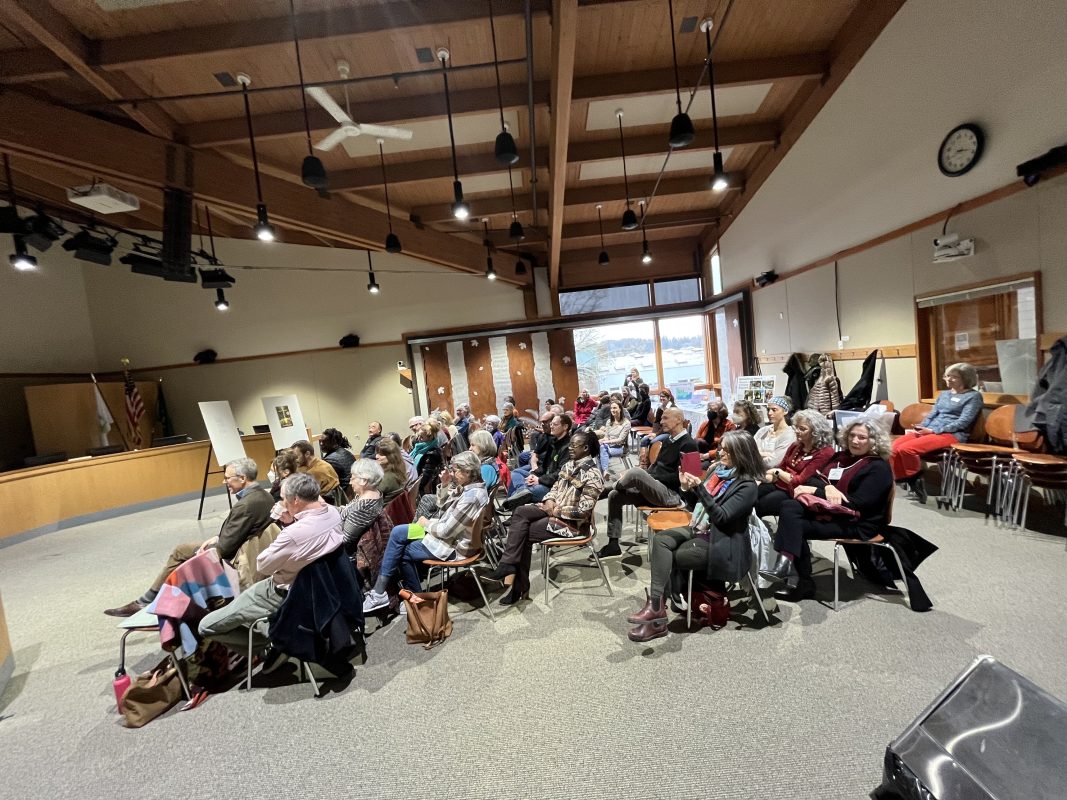
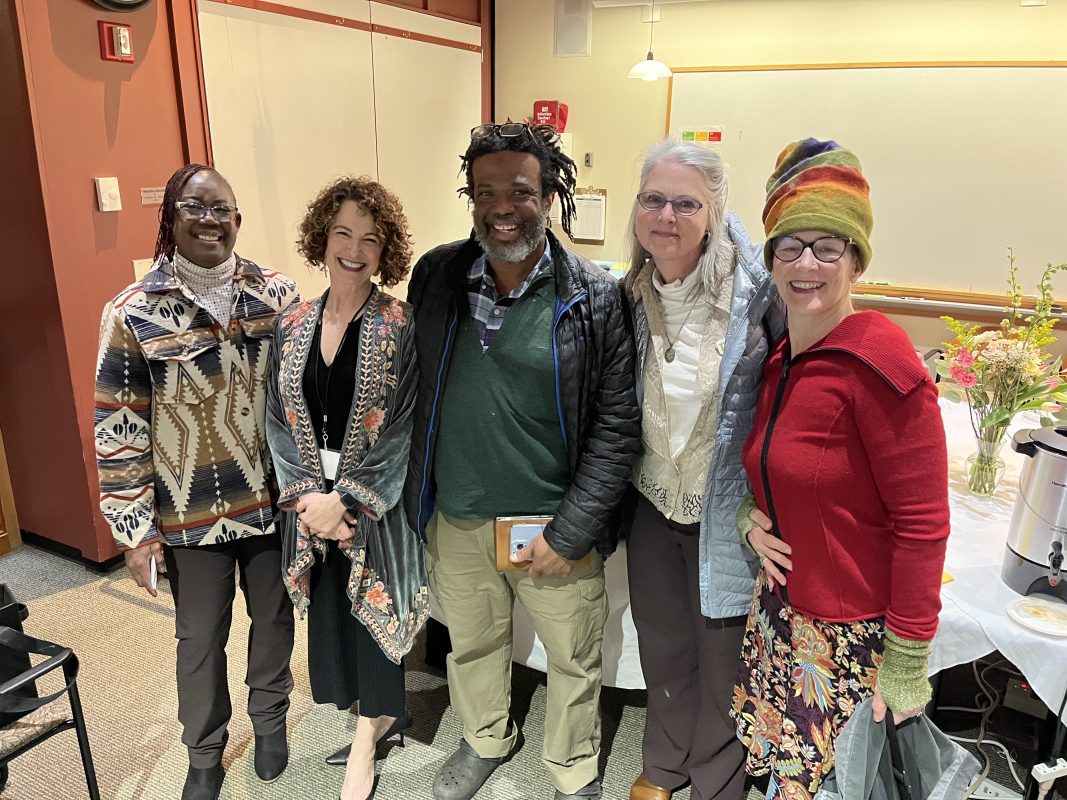
Like other poets, I’m often called upon for the big moments: weddings, funerals, the birth of a baby, the death of a child. Because sometimes, there are no words. But we reach for them anyway because poetry reaches for the words under the words. Words to knit us back together. My favorite definition of poetry is that poetry says the unsayable.
But most of my poetry are the small moments, the moment of connection, the small moment with lasting impact. And my life here on Bainbridge is rich in connection. Here is a poem from my book, What We Do. It’s a sonnet, a form often for love as this is a type of love poem. You’ll recognize where and who I am talking about:
Breakfast At the Local Diner (It’s the Streamliner) pg. 78
Poetry heals- both in the reading and in the writing. Poets have long known this, but there is data now that shows its positive effects on mental health, how it helps with depression and anxiety, data that supports poetry and expressive arts as part of good public health. I believe poetry can help heal a community, not only at the individual level. Poetry can help us tap into something bigger than ourselves, tell our stories, knit us together, hold possibility.
Here is a poem I wrote for this occasion today:
The Marge Williams Center
The only thing tragedy gives us is the opportunity to rebuild our lives. -Paulo Coelho
Holding environments, they call them:
a safe space to process, heal, gather.
After Boston, a courtyard near the marathon
where people string prayers on trees. Elsewhere,
schools razed, replaced by atriums and gardens.
And in my town, where we didn’t lock our doors,
Marge was found on a clear summer morning.
I won’t give the details. A trial, a guilty verdict,
first degree. That was twenty-five years ago.
When Marge learned we lived away from family,
she said I’ll be grandma, brought my kids
books and cookies, taped their pictures
on her refrigerator. Now her house is a place
for housing aid, humanities, arts in a town known
for opulent flower baskets that line Main Street
and the July 4th parade with the beagle brigade
and the grocery cart precision drill team
from the local store whose owners said
they’d provide the tent, food, tables, anything
we needed for her funeral, just don’t mention us.
Few remember what happened that summer
but folks here know where good happens-
the little red house on the edge of town.
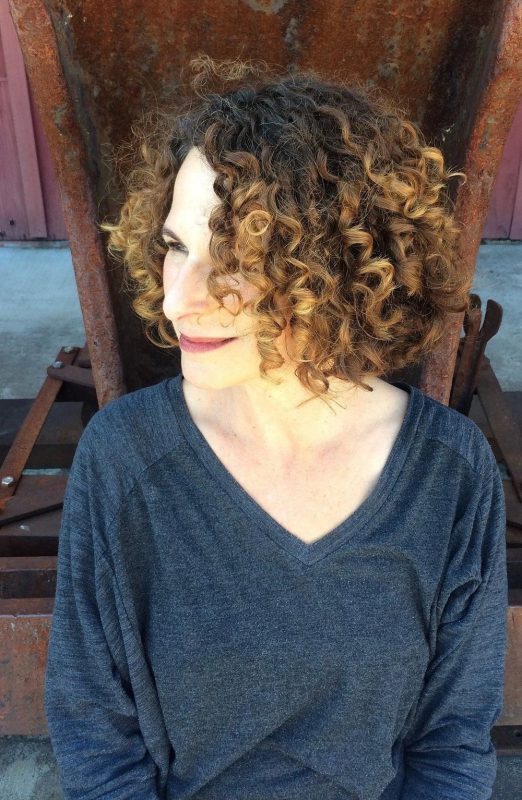
ABOUT MICHELE BOMBARDIER Poet and speech-language pathologist Michele Bombardier considers herself both artist and mechanic with language and communication as her medium. She has worked as a SLP for over 35 years and is passionate about facilitating connection through language. Her book of poetry What We Do (Aldrich Press, 2018) has been met with great acclaim and her poetry and book reviews can be found in numerous literary journals. Michele is also the founder of Fishplatepoetry, a social purpose organization that offers workshops and retreats for writers while raising funds for humanitarian relief. Michele has a small clinic on Bainbridge Island where she works as an SLP with all ages and has an impressive collection of vintage Matchbox trucks. She lives with her family under giant fir and cedar trees.